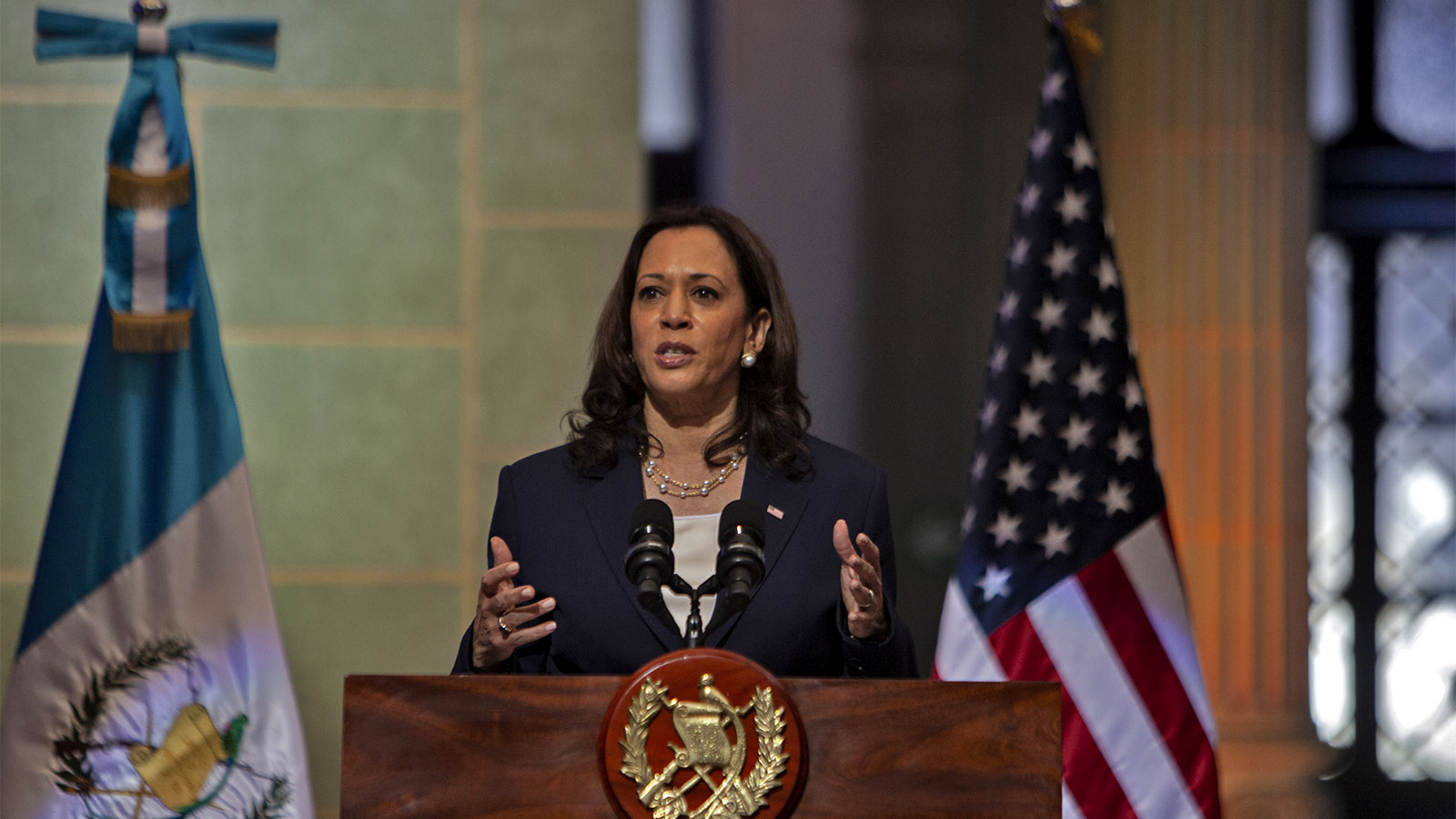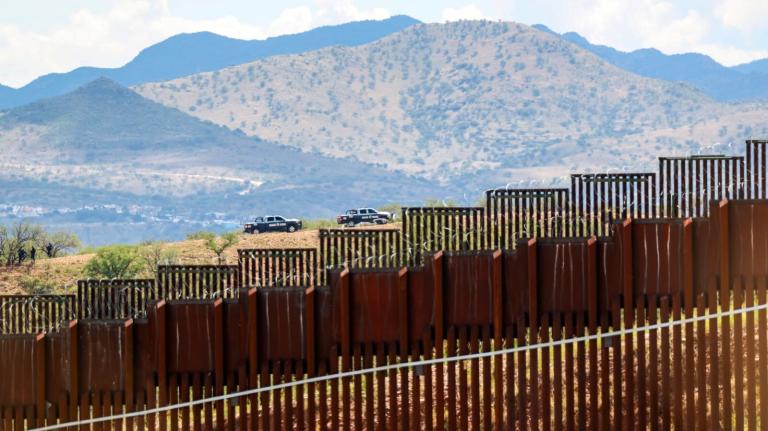Vice President Kamala Harris had a simple message for migrants seeking relief during her first international trip in the role: “Do not come.”
Harris, who gave a press conference with Guatemalan President Alejandro Giammattei after private talks about U.S. President Joe Biden’s goals to curb migration at the southern border, named corruption and human trafficking as among the most pressing causes of migration from the Central American country. What she failed to mention, however, was 2020’s biggest driver of migration: severe weather, which makes the “do not come” instruction nearly impossible to follow. Nearly 600,000 people from Honduras, Guatemala, and Nicaragua were displaced last year due to Hurricanes Eta and Iota.
Harris and the Biden administration haven’t completely ignored migration due to climate change. Right before her trip to Guatemala, Harris’ staff said the “main drivers” of migration to the southern border are climate and the economy. Currently, no nation offers asylum or other legal protections to people displaced specifically because of climate change. But in February, Biden signed an executive order signaling a future where those displaced by climate disasters could one day get refugee status and protection.
That future is still a ways off — the executive order only commissioned a federal report on climate migration. In the meantime, Harris is doubling down on the administration’s current cornerstone plan to tackle migration: a $4 billion investment to “build security and prosperity” in Central America.
The plan, meant to reduce economic inequality and corruption while mitigating the direct fallout from natural disasters, entails sending money to stimulate the region’s economy, including commitments from private American companies such as Mastercard and Microsoft; supporting Central American police departments both financially and logistically through an “Anticorruption Task Force”; and establishing designated processing centers throughout Central America to make applying for U.S. asylum easier. But what it fails to incorporate are solutions to some of the most pressing issues causing displacement: increasing global temperatures, rising sea levels, and severe weather events.
The proposal follows recent federal immigration strategies that prioritize border surveillance and humanitarian responses over opening up immigration pathways or properly addressing the root causes of displacement. Currently, the Biden administration is following a Trump-era rule to rapidly turn away migrants without providing them the chance to apply for asylum.
Biden has acknowledged the importance of tackling climate change in general — he reintroduced the U.S. into the Paris Agreement, hosted global leaders in a climate summit, promised to slash American emissions 50 percent by 2030, and has proposed a major climate-conscious infrastructure bill. But climate change is curiously absent from his current immigration strategies. Increasing aid to countries with large numbers of climate migrants won’t make a dent in greenhouse gas emissions, droughts, rising sea levels, or any of the violent weather events to come, especially as America continues to fund fossil fuels projects in the Global South, where a majority of climate migrants will be fleeing from in the next 30 years. The World Bank projects that climate change will force 143 million people in Latin America, Africa, and Asia to leave their homes by 2050.
Climate and migration advocates have called on the Biden administration to broaden U.S. immigration laws to grant official protection status for those displaced by disasters. This could be done through legislation or even without congressional approval by using the Temporary Protected Status program.
While a U.S. Senator from California, Harris supported a bill that would have redesigned U.S. immigration law to accommodate climate migrants. The bill, recently re-introduced by Senator Ed Markey of Massachusetts, would establish new protocols for admitting and supporting tens of thousands of temporarily climate-displaced people annually.
As Harris said in Guatemala on Monday, “Most people don’t want to leave the place they grew up… and when they do leave, it usually has to do with two reasons: Either they are fleeing some harm, or they simply cannot satisfy their basic needs.” Climate change has the power to both cause that harm and make satisfying basic human needs difficult. Immigration policymakers ignore it at their peril.




